detail profile peter carsten

Riwayat Hidup
Weißenburg, Bavaria, Germany-born Peter Carsten was an actor and producer, known for A Study in Terror (1965), 11 Uhr 20 (1970) and Thirteen Days to Die (1965).
He died on April 20, 2012 in Lucija, Slovenia.
Info Pribadi
Peran Yang Di Mainkan Peter Carsten
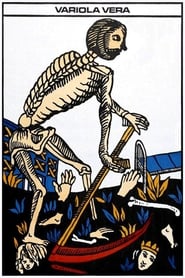 An Albanian pilgrim infected with an...
An Albanian pilgrim infected with an...Variola Vera 1982
An Albanian pilgrim, infected with an unknown disease, is on his way back to Belgrade from the Middle East. When doctors realize that it is a disease that has been considered eradicated, it is already too late - variola vera begins to languish and the hospital is quarantined.
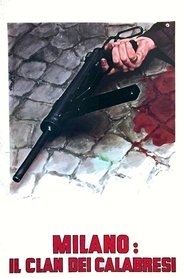 Paolo Mancuso is a gang boss...
Paolo Mancuso is a gang boss...The Last Desperate Hours 1974
Paolo Mancuso is a gang boss whose rivals want dead. During a failed assassination attempt, he is bitten by an infected lab rat. In the short time he has left to live, he tracks down his enemies and kills them one by one.
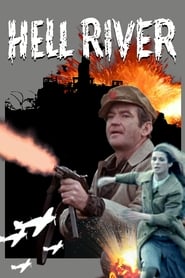 Yugoslav partisans battle Nazi invaders in...
Yugoslav partisans battle Nazi invaders in...Hell River 1974
Yugoslav partisans battle Nazi invaders in a series of bloody confrontations which eventually culminate in the Battle at Hell River.
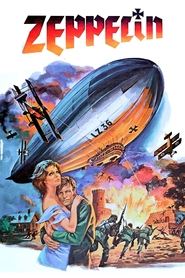 The outbreak of World War I...
The outbreak of World War I...Zeppelin 1971
The outbreak of World War I places Scots officer Geoffrey Richter-Douglas in an uncomfortable position. Although his allegiance is to Britain, his mother was from an aristocratic Bavarian family, and he spent his summers in Germany as a child. When Geoffrey is approached by a German spy who offers him a chance to defect, he reports the incident to his superiors, but instead of arresting the spy they suggest that he accept her offer--and become an Allied agent. In Germany, among old friends, Geoffrey discovers that loyalty is more complicated than he expected, especially when he finds himself aboard the maiden voyage of a powerful new prototype Zeppelin, headed for Scotland on a secret mission that could decide the outcome of the war.
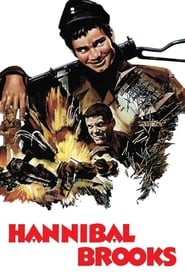 A POW in World War II...
A POW in World War II...Hannibal Brooks 1969
A POW in World War II is put to work in a Munich zoo, looking after an Asian elephant. The zoo is bombed by the Americans and the director of the zoo decides it is not safe for his Asian elephant Lucy to remain there. So he sends Brooks to safety with Lucy. They escape and go on the run in order to get to Switzerland.
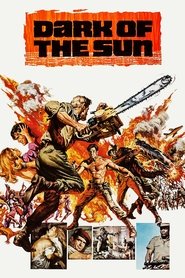 A band of mercenaries led by...
A band of mercenaries led by...Dark of the Sun 1968
A band of mercenaries led by Captain Curry travel through war-torn Congo across deadly terrain, battling rival armies, to steal $50 million in uncut diamonds. But infighting, sadistic rebels and a time lock jeopardize everything.
 In his remote China hideaway the...
In his remote China hideaway the...The Vengeance of Fu Manchu 1967
In his remote China hideaway the evil Fu Manchu plots the death and discredit of his arch rival, Inspector Nayland Smith of Scotland Yard.
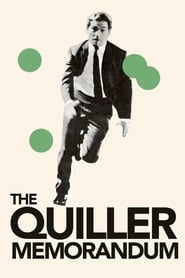 After two British Secret Intelligence Service...
After two British Secret Intelligence Service...The Quiller Memorandum 1966
After two British Secret Intelligence Service agents are murdered at the hands of a cryptic neo-Nazi group known as Phoenix, the suave agent Quiller is sent to Berlin to investigate.
 When Watson reads from the newspaper...
When Watson reads from the newspaper...A Study in Terror 1965
When Watson reads from the newspaper there have been two similar murders near Whitechapel in a few days, Sherlock Holmes' sharp deductive is immediately stimulated to start its merciless method of elimination after observation of every apparently meaningless detail. He guesses right the victims must be street whores, and doesn't need long to work his way trough a pawn shop, an aristocratic family's stately home, a hospital and of course the potential suspects and (even unknowing) witnesses who are the cast of the gradually unraveled story of the murderer and his motive.
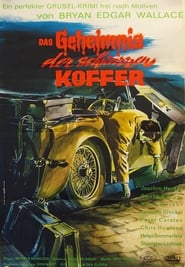 A series of knife murders have...
A series of knife murders have...The Secret of the Black Trunk 1962
A series of knife murders have an odd feature about them; the victims find that their luggage has been packed for them just before their deaths. Scotland Yard investigates, and discover that the murders are linked to an addictive drug called Mescadrine.
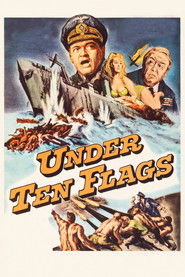 Under Ten Flags is a WWII...
Under Ten Flags is a WWII...Under Ten Flags 1960
"Under Ten Flags" is a WWII movie loosely based on the true story of the German navy commerce raider Atlantis, a converted Auxilliary Cruiser, and her Captain Bernhard Rogge. Atlantis, camouflaged as a merchant ship, cruised the South Seas ( Atlantic, Indian & Pacific) and sank or captured 22 merchant ships from May 1940 through November 22, 1941 when she was sunk by the British Cruiser HMS Devonshire. Rogge was one of the few German officers of flag rank who were not arrested by the Allies after the war ended. This was due to the very proper and ethical way he exercised his command of Atlantis. After the war he advanced to Rear Admiral in the West German Navy and became a high-ranking NATO commander.
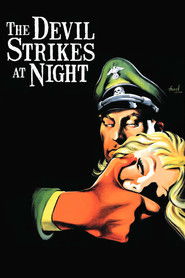 Hamburg Germany 1944 during World War II...
Hamburg Germany 1944 during World War II...The Devil Strikes at Night 1957
Hamburg, Germany, 1944, during World War II. A serial killer terrorizes the city. When it seems clear that the local police are unable to catch him, forces as dark and terrible as the criminal himself become involved in the case.
 The third part of Paul Mays 0815...
The third part of Paul Mays 0815...08/15 at Home 1955
The third part of Paul May′s "08/15" trilogy based on the novel by Hans Hellmut Kirst takes place shortly before the end of World War II: In the spring of 1945, the German troops are practically defeated, and the battalion of Kowalski, major general von Plönnies and Asch who had risen to the rank of lieutenant in the meantime is left to its own devices to a large extent. They hope to be able to wait for the end of the war without having to encounter any combat operations. At the same time, Asch tries to prevent high-level Nazi officers from disappearing unnoticed and from cashing in on the chaotic circumstances.
 Winter 1942 Like thousands of other German...
Winter 1942 Like thousands of other German...08/15 Part 2 1955
Winter 1942: Like thousands of other German soldiers, Asch and Vierbein have ended up at the Eastern front. Although Vierbein finds a new friend in Kowalski, the squadron commander captain Witterer, a true army veteran, gives them a really hard time. Witterer’s pointless orders reflect the bad habits of many former superiors. And again, Vierbein has to bear the brunt.
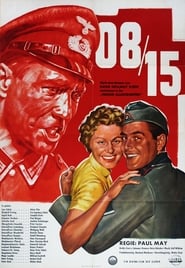 Life in the barracks drill harassment...
Life in the barracks drill harassment...08/15 1954
Life in the barracks, drill, harassment, and private Asch′s pranks are the ingredients of Hans Hellmut Kirst′s successful novel "08/15" (the number of an Army regulation). Shortly before the outbreak of World War II: Private Asch and gunner Vierbein belong to the same unit but could not be more contrary. The instructors use every opportunity to bully the clumsy Vierbein with erratic corporal Platzek leading the way. The harassment starts with minor extra duties but soon the methods become more and more brutal. Finally, Asch comes to Vierbein′s help and takes on his superiors. Joachim Fuchsberger stars in his first major role.
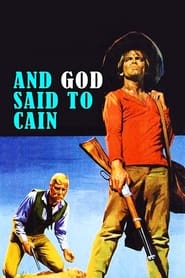 An innocent man sentenced to ten...
An innocent man sentenced to ten... Emma Bovary is bored by her...
Emma Bovary is bored by her... Tony Marchal is a professional seducer...
Tony Marchal is a professional seducer...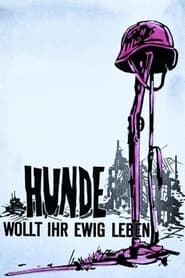 In the winter of 1943 against the...
In the winter of 1943 against the...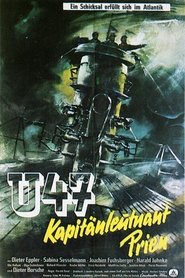 In 1939 German Uboat captain Gnther Prien...
In 1939 German Uboat captain Gnther Prien...